Dr. JOKHA al-Harthi Wins 2019 Man Booker International Prize
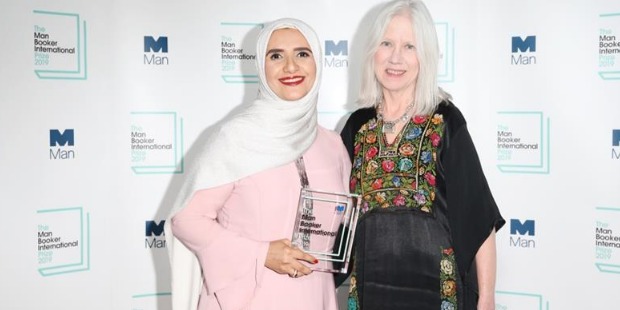
Dr. Jokha al-Harthi created history for Oman by becoming the first-ever Arabic author to win the 2019 Man Booker International Prize, with her translator Marilyn Booth, for her novel ‘Celestial Bodies’. Dr. Jokha al-Harthi’s Arabic novel ‘Sayyidat al Qamar’ was translated in English and titled ‘Celestial Bodies’. This year one male and five female authors were shortlisted as the finalists for the prestigious literary prize. Dr. Jokha al-Harthi emerged the ultimate winner.
Thrilled and ecstatic, Dr. Jokha al-Harthi exclaimed, “I am thrilled that a window has been opened to the rich Arabic culture. Oman inspired me, but I think international readers can relate to the human values in the book - freedom and love.” Dr. Jokha al-Harthi and Marilyn Booth will share the £50,000 prize money equally.
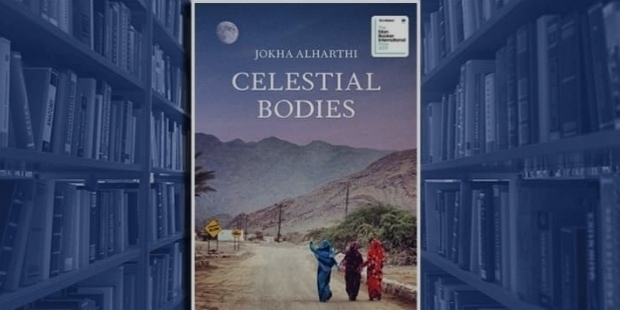
Historian Bettany Hughes, the Chair of the five-member judging panel stated, “The winning novel is a book to win over the head and the heart in equal measure, worth lingering over. Interweaving voices and timelines are beautifully served by the pacing of the novel. Its delicate artistry draws us into a richly imagined community – opening out to tackle profound questions of time and mortality and disturbing aspects of our shared history.
The style is a metaphor for the subject, subtly resisting clichés of race, slavery and gender. The translation is precise and lyrical, weaving in the cadences of both poetry and everyday speech. ‘Celestial Bodies’ evokes the forces that constrain us and those that set us free.”
2019 Man Booker International Prize:
The Man Booker International Prize, hosted in the United Kingdom, is an international literary award given each year since 2016. The prestigious literary award is rewarded to an author's continued creativity, development and overall contribution to fiction on the world stage. It is recognition of the writer's body of work, rather than any one title.
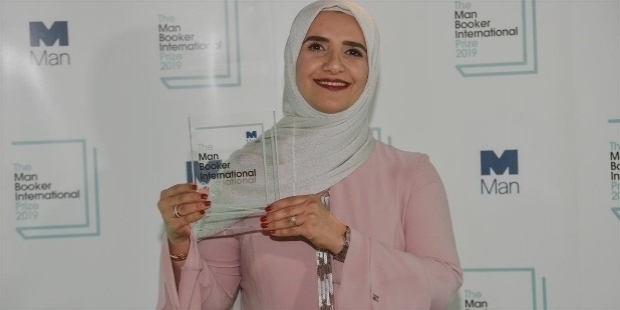
The 2019 Man Booker International Prize was judged by Bettany Hughes (Chair), Maureen Freely, Angie Hobbs, Pankaj Mishra and Elnathan John. A total of six finalists were picked up from a total of 13 authors, who made the cut from the ‘Longlist’.
Polish author Olga Tokarczuk, who had won last year’s Man Booker International Prize once again made it in the ‘Shortlist’ with her novel ‘Drive Your Plow Over the Bones of the Dead’. French author Annie Ernaux’s ‘The Years’; German Marion Poschmann’s ‘The Pine Islands’; Colombian Juan Gabriel Vasquez’s ‘The Shape of the Ruins’ and Chilean Alia Trabucco Zeran’s ‘The Remainder’ were the others shortlisted authors for this year’s coveted prize.
CELESTIAL BODIES:
Dr. Jokha al-Harthi’s novel ‘Celestial Bodies’ depicts the story of three sisters - Mayya, Asma and Khawla, who reside in the Omani village al-Awafi. Mayya has had heartbreak and marries Abdallah. Asma is the duty-bound sister, who marries from a sense of duty. The third sister Khawla waits for her beloved, who has relocated to Canada.
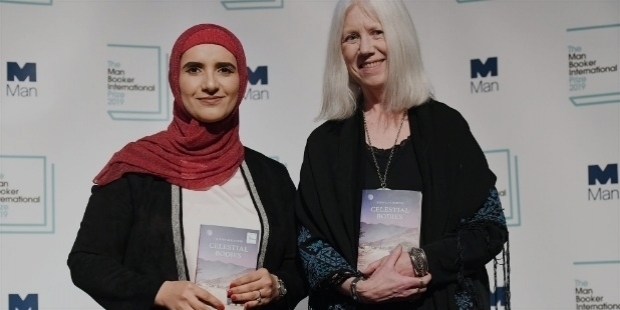
All the three witness Oman’s revolution from a traditional slave-owning society, which is slowly redefining itself after the colonial era, to the crossroads of its complex present. The author describes their arduous journey touching the slavery subject. Dr. Jokha al-Harthi says, “I think literature is the best platform to have this dialogue.” ‘Celestial Bodies’ is about family connections and history in the coming-of-age account of the three sisters.
Professor Michael Cronin, Director of the Trinity Centre for Literary and Cultural Translation beautifully describes, “How women fare in changed circumstances and what they are and are not allowed to remember is a recurring preoccupation. ‘Celestial Bodies’ deftly undermines recurrent stereotypes about Arab language and cultures, but most importantly brings a distinctive and important new voice to world literature.”
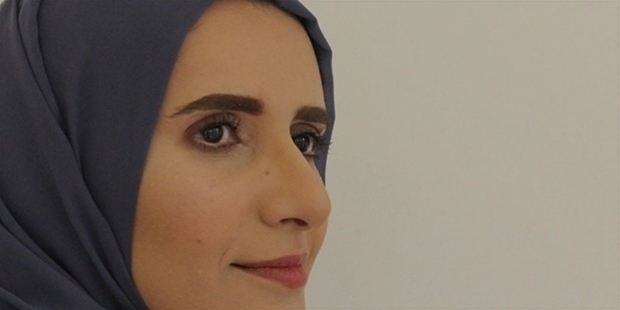
Professor Cronin added, “The writing is teasingly elliptical throughout and there is a kind of poetic understatement that draws the reader into the domestic settings and public tribulations of the three sisters. They possess agency and character and in their different ways deal with the logjam of tradition and the uncertain freedoms of expanding worlds. The novel is also told in parts through the voice of Mayya’s husband Abdallah, whose tale of abuse at the hands of his father Sulayman also picks up on the unspoken atrocities of slavery in the region.
Ranging across three generations with a crowd of voices tracking Oman’s shift from a typical desert dynasty of the village al-Awafi to the urban oasis of the city Muscat, the novel is a beautifully achieved account of lives pulling at the edges of change. Dr. Jokha al-harthi tracks the fortunes of a merchant family with a troubled past in the slave trade and concentrates in particular on the lives and destiny of the sisters.”
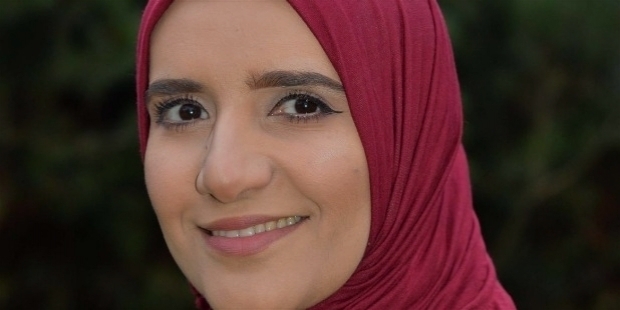
Slavery in Oman was outlawed in the year 1970. Dr. Jokha al-Harthi revealed that the subject of slavery is a sensitive subject and kind of a taboo in Oman. Slavery is not exclusive to Oman. It is part of the human history. Translator Marilyn Booth had stated, “What one really learns here about the Arab world is that there are amazing factionalists throughout the region. Not only in the better-known hubs of literary creation such as Egypt, Palestine, Lebanon, Morocco and many other places, but also in a country less literarily mapped like Oman.”
The Journey of Success:
Jokha al-Harthi was born in Oman on the 22nd of July 1978. The talented academician-writer was educated in Oman and the United Kingdom. After her post graduation, Jokha pursued doctorate in Classical Arabic Literature in the United Kingdom. In the year 2010, she completed her Ph. D from the Edinburgh University, Scotland, UK. Dr. Jokha al-Harthi is currently working as an Associate Professor at the Sultan Qaboos University, Muscat. She works in the Arabic department.
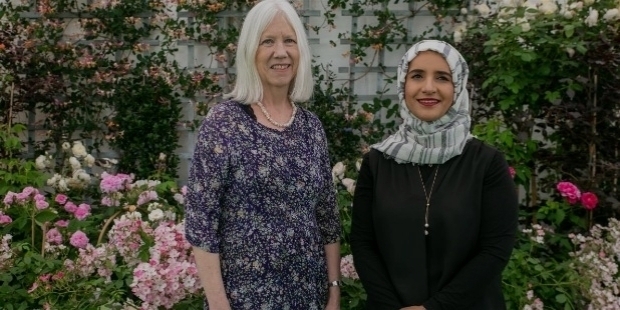
Dr. Jokha al-Harthi has authored ten books so far. Three novels titled ‘Manamat’, ‘Sayyidat al Qamar’ and ‘Narinjah’; two collections of short stories titled ‘Fi Madih al-Hubb’ and ‘Sabi Ala al-Sath’; two children’s books titled ‘The Cloud Wishes’ and ‘Ushsh lil-Asafir’. In the year 2016, Dr. Jokha al-Harthi had won the Sultan Qaboos Award for Culture, Art and Literature for her novel ‘Narinjah’.
Being a highly talented academician, Dr. Jokha al-Harthi has also authored academic works. She is a very popular and renowned Omani author, whose works have been translated in English, Korean, Italian, German and Serbian languages. Dr. Jokha al-Harthi happens to be the first Omani female author, whose works have been translated in English.
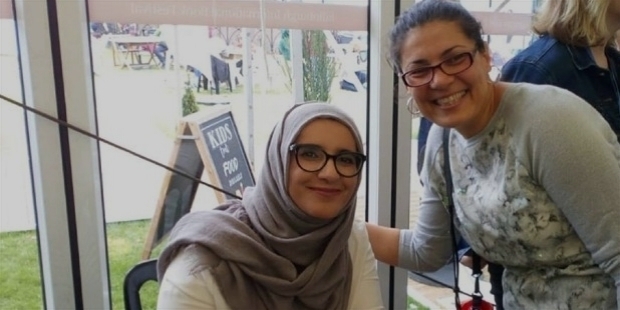
The Translator:
Marilyn Louise Booth was born on the 24th of February 1955 in Boston, USA. IN the year 1978, she graduated summa cum laude from Harvard University. Marilyn Booth was the female to win the Wendell Scholarship. Her intelligence and talent in Arabic language earned Marilyn a Marshall Fellowship for her doctoral studies at Oxford. In the year 1985, she completed her D. Phil in Arabic Literature and Middle Eastern History from St. Antony’s College, Oxford.
Dr. Marilyn Booth was the Director of the Centre for South Asian and Middle Eastern Studies at UIUC. At the University of Edinburgh, Dr. Booth currently holds the Iraq Chair of Arabic and Islamic Studies. She has taught in various Universities of repute, prominent among them are Brown University, American University in Cairo, and University of Illinois, Urbana-Champaign.
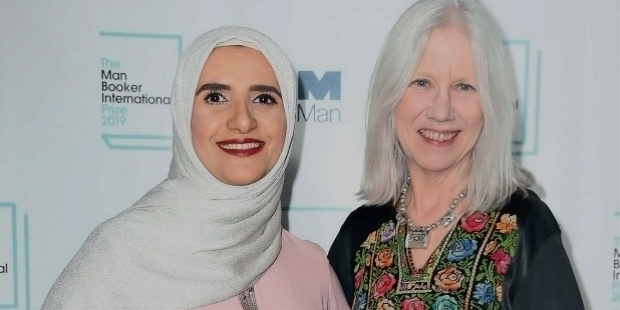
Dr. Marilyn Booth, the multifaceted author-scholar-translator of Arabic Literature works as the Khalid bin Abdullah Al Saud Professor for the Study of the Contemporary Arab World at the University of Oxford and a Fellow of Magdalen College, Oxford since 2015.
Dr. Marilyn Booth has authored two books, including one on the Egyptian nationalist poet Bayram al-Tunisi. She has also written numerous scholarly papers and book chapters. Dr. Booth has translated numerous works of Arabic Literature in English. Her works have been published in ‘Banipal’ and ‘Words Without Borders’.
Dr. Marilyn Booth had won the Arkansas Arabic Translation Award. She was also the runner-up for the Banipal Prize. Her superb and perfect translation of Dr. Jokha al-Harthi’s ‘Sayyidat al Qamar’ captures the essence of Arabic nuances to a perfect ‘T’. ‘Celestial Bodies’ has fetched Dr. Booth her first Man Booker International Prize this year.
- Full Name :
- Jokha al-Harthi
- Zodiac Sign :
- Leo
- Birth Place :
- Oman
- Occupation :
- Author
- Industry :
- Publishing









